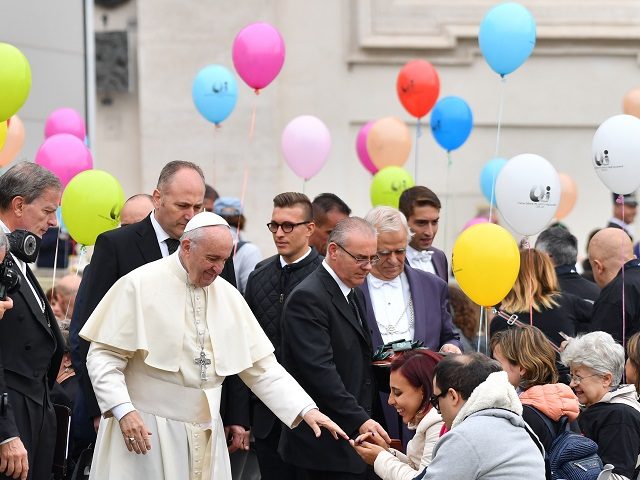Since globalization has “deeply altered the previous international order,” Pope Francis said Friday, humanity must rethink “the figure and the role of the nation-state” in this new world order.
“The State cannot be conceived of as the sole and exclusive guardian of the common good,” the Pope told participants in a workshop organized by the Pontifical Academy of Social Sciences, “not allowing intermediate bodies of civil society to express, in freedom, their full potential.”
“This would this be a violation of the principle of subsidiarity which, combined with that of solidarity, constitutes a cornerstone of the social doctrine of the Church,” he said.
“The challenge here,” Francis added, “is how to bring individual rights into accord with the common good.”
“I think the position of civil society is to ‘pull’ the State and the market forward so they will rethink their raison-d’être and their way of working,” he said.
Last February, the Vatican’s Secretary of State Cardinal Pietro Parolin said that the Holy See is concerned over growing populist and nationalist movements, both in Europe and in the United States, adding that many of them “are born of fear, which is not a good counsellor.”
The Cardinal also recalled comments by Pope Francis, saying that “there is a risk of history repeating itself.”
In March, Pope Francis addressed more than 20 European heads of state, calling solidarity “the most effective antidote to modern forms of populism,” while denouncing nationalism as a new strain of selfishness.
In his speech, the Pope advocated a stronger, consolidated Europe against the rising tide of populist movements.
The pontiff contrasted solidarity, which draw us “closer to our neighbors,” with populism, which is “the fruit of a selfishness that hems people in and prevents them from overcoming and ‘looking beyond’ their own narrow vision.”
“There is a need to start thinking once again as Europeans,” Francis said, “so as to avert the opposite dangers of a dreary uniformity or the triumph of particularisms.”
During his address Friday, the Pope underscored what he called two “specific causes” of exclusion and marginalization in the world today, namely inequalities and exploitation on the one hand and undignified work, on the other.
The first, he said, “is the increase in endemic and systemic inequalities and exploitation of the planet, which is greater than the increase of income and wealth.”
Inequality and exploitation, he said, “are not inevitable, nor a historical constant. They are not inevitable because they depend not only on individual behavior, but also by economic rules that a society chooses to adopt.”
Depending on how different sectors of society are conceived, he said, “you have different outcomes regarding how income and wealth are distributed among those who have helped to produce them.”
“If profit prevails as the goal, democracy tends to become a plutocracy in which inequality and the exploitation of the planet grow. I repeat: this is not a necessity,” he said.
Regarding the second, “work unworthy of the human person,” Francis said that the world must go beyond mere just wages for workers to redesign the process of production to the person and his way of life.
The creation of new types of work, more consonant with man’s dignity, the pontiff continued, “require open and enterprising persons, fraternal relations and research and investment for the development of clean energy to meet the challenges posed by climate change.”
“We must detach ourselves from public and private lobbies that defend the interests of their sectors, and also overcome the forms of spiritual laziness,” he said.
“Political activity must truly be placed at the service of the human person, the common good and respect for nature,” he said.
Follow Thomas D. Williams on Twitter Follow @tdwilliamsrome

COMMENTS
Please let us know if you're having issues with commenting.